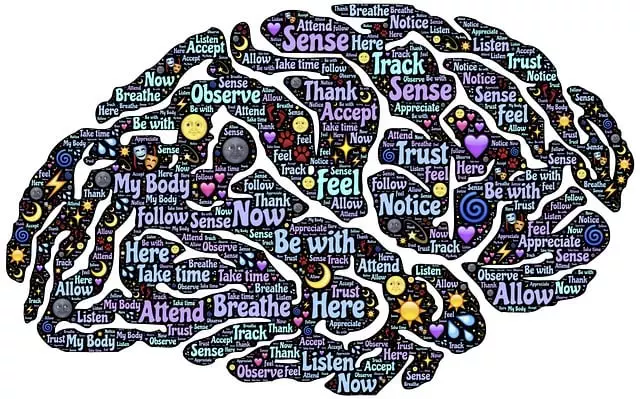Cultural sensitivity in mental healthcare is crucial for patient satisfaction and effective treatment in diverse regions like Norcal and Denver. Kaiser Permanente prioritizes this through initiatives like Community Outreach Programs, tailored services, and training that equip professionals to understand and respect diverse cultural backgrounds and traditional healing practices. By offering personalized guidance via the Kaiser Permanente mental health phone number for Norcal and Denver, they foster inclusive environments where individuals feel empowered to seek support for their mental health, setting them apart from competitors.
Cultural sensitivity is a cornerstone of effective mental healthcare, ensuring that services are accessible and impactful across diverse communities. This article explores this critical aspect, focusing on navigating cultural nuances in Norcal and Denver, two regions with distinct populations. We delve into the strategies employed by Kaiser Permanente, as seen in their cultural competence initiatives, and present actionable approaches for incorporating sensitivity into phone-based mental health services, serving the needs of all clients, including those accessing care through the Kaiser Permanente mental health phone number in Norcal or Denver.
- Understanding Cultural Sensitivity: A Cornerstone of Mental Healthcare
- Navigating Diverse Communities: Challenges and Opportunities in Norcal and Denver
- Kaiser Permanente's Approach to Cultural Competence: A Case Study
- Strategies for Incorporating Cultural Sensitivity into Phone-Based Mental Health Services
Understanding Cultural Sensitivity: A Cornerstone of Mental Healthcare

Cultural sensitivity in mental healthcare is a cornerstone of effective treatment and patient satisfaction. It involves recognizing and appreciating the diverse beliefs, values, and practices that shape individuals’ lives, especially those from different ethnic, cultural, or socio-economic backgrounds. In regions like Norcal, Denver, where communities are becoming increasingly diverse, mental health professionals must be equipped to navigate these complexities. For instance, a patient’s perspective on mental illness and the path to recovery can be influenced by their cultural background, historical experiences, and community support systems.
At Kaiser Permanente, our commitment to mental healthcare is reflected in our comprehensive approach, which includes initiatives like Community Outreach Programs. By actively engaging with diverse communities, we foster Mental Health Awareness and aim to prevent conditions such as depression. This involves tailoring services to meet the unique needs of various populations, ensuring that everyone receives culturally competent care. Through these efforts, we strive to create an inclusive environment where individuals feel understood and empowered to seek support for their mental health.
Navigating Diverse Communities: Challenges and Opportunities in Norcal and Denver

Navigating diverse communities presents unique challenges and opportunities for mental healthcare providers in Norcal and Denver. These urban areas are known for their multicultural populations, with residents hailing from various ethnic backgrounds, religions, and socioeconomic statuses. When seeking mental health services, cultural sensitivity becomes paramount. Each community brings its own set of beliefs, values, and practices that can influence how individuals perceive and access care. For instance, some cultures may prioritize collective family support over individual therapy, while others might have specific spiritual or herbal remedies for mental well-being. Understanding these nuances is essential to providing culturally competent care.
Mental health professionals in Norcal and Denver must be adept at adapting their approaches to meet the unique needs of different communities. This involves learning about local cultural contexts, collaborating with community leaders, and incorporating diverse perspectives into treatment plans. Organizations like Kaiser Permanente, with their extensive reach, play a crucial role in promoting mental health services tailored to these regions. By addressing depression prevention through public awareness campaigns development and encouraging self-care routine development for better mental health, they contribute to building resilient communities that embrace cultural sensitivity at every level of care delivery.
Kaiser Permanente's Approach to Cultural Competence: A Case Study

Kaiser Permanente, a renowned healthcare organisation, has been at the forefront of promoting cultural sensitivity in mental health services, particularly through its Norcal and Denver regions. Their approach to cultural competence is a compelling case study worth examining. The company recognises that providing culturally responsive care is essential for addressing the unique needs of diverse patient populations.
By integrating Self-Awareness Exercises and Empathy Building Strategies into their training programs, Kaiser Permanente empowers mental health professionals to offer tailored support. These strategies ensure that healthcare providers understand and appreciate the impact of cultural backgrounds on mental well-being. For instance, they learn to adapt treatment plans for specific ethnic groups, considering traditional healing practices and community resources, thereby improving patient outcomes and fostering a sense of trust in the care received. The organisation’s commitment to these initiatives has significantly enhanced its reputation, especially when compared to competitors like the Kaiser Permanente mental health phone number Norcal and Denver branches.
Strategies for Incorporating Cultural Sensitivity into Phone-Based Mental Health Services

Incorporating cultural sensitivity into phone-based mental health services is essential, especially when reaching diverse communities like those served by Kaiser Permanente Mental Health Phone Number Norcal Denver. One effective strategy is to ensure that healthcare providers are themselves from diverse backgrounds or have extensive training in cross-cultural competencies. This allows for a deeper understanding of various cultural perspectives and beliefs around mental illness, which can significantly enhance the therapeutic relationship. Customizing care plans to reflect these cultural nuances fosters trust and encourages open communication, essential factors in successful phone-based therapy.
Additionally, integrating coping skills development tailored to different cultural contexts can make services more inclusive. Addressing unique stressors and challenges faced by diverse populations helps reduce the mental illness stigma, a barrier that disproportionately affects non-dominant communities. By incorporating cultural sensitivity, these phone-based services not only improve access to care but also actively contribute to burnout prevention among healthcare providers by fostering a more supportive and empathetic environment for all clients, regardless of their background or identity.
Cultural sensitivity in mental healthcare is no longer a consideration—it’s an imperative. As communities in Norcal and Denver become increasingly diverse, providers must adapt their practices to meet the unique needs of various cultural backgrounds. Kaiser Permanente’s commitment to cultural competence, evident through their phone-based mental health services, serves as a compelling case study. By employing strategies that incorporate cultural sensitivity, such as training staff, translating resources, and tailoring treatments, mental healthcare practitioners can improve access and outcomes for all. For those seeking support, remembering that the right approach can make all the difference, especially when reaching out via the Kaiser Permanente mental health phone number in Norcal or Denver.






